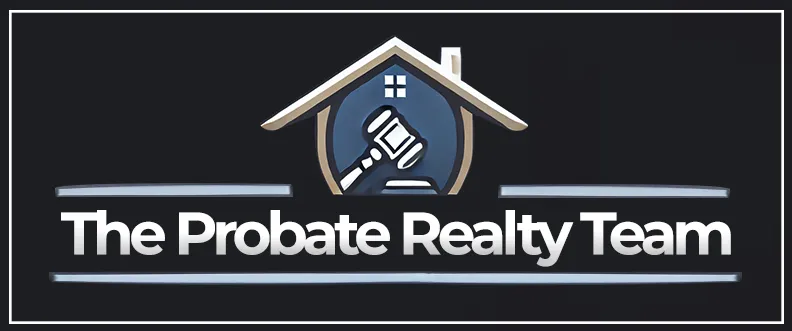Table Of Contents
[1] When is Probate Necessary in Pennsylvania?
[2] Testate vs. Intestate Estates
[3] Small Estates in Pennsylvania
[4] Assets Subject to Probate
[5] Pennsylvania Probate Process: Step-by-Step Overview
[5a] Filing the Will and Petition for Probate
[5b] Appointment of Executor or Administrator
[5c] Notifying Creditors and Beneficiaries
[5d] Inventorying the Estate
[5e] Settling Debts, Taxes, and Expenses
[5f] Asset Distribution to Beneficiaries
[5g] Closing the Estate
[6] Alternatives to Probate in Pennsylvania
[6a] Small Estate Affidavit
[6b] Transfer by Affidavit
[7] Tips for Managing the Probate Process
[7a] Seek Legal Counsel
[7b] Maintain Clear Communication
[7c] Stay Organized
When is Real Estate Probate Necessary?
Probate is typically necessary when an individual passes away leaving assets that do not have designated beneficiaries or are not jointly owned. The need for probate can be influenced by whether the deceased had a valid will and the type and value of their estate assets.
Testate vs. Intestate Estates
If an individual dies with a valid will, they are considered to have died "testate," and the estate must go through probate. The will must be submitted to the relevant Pennsylvania probate court, known as the Register of Wills Office in the county where the decedent resided, and the executor must carry out its terms.
If an individual passes away without a will, known as dying "intestate," the estate’s distribution is governed by Pennsylvania's intestacy laws. In this scenario, the court appoints an administrator to oversee the estate's management, which must proceed through probate to ensure proper distribution according to state law.
Small Estates in Pennsylvania
A simplified probate process may be available if the estate is considered "small," meaning the total value of probate assets, excluding real estate, does not exceed $50,000. This can allow for a streamlined approach known as "settlement by affidavit" or "summary administration."
Assets Subject to Probate
Assets that generally require probate in Pennsylvania include:
[i] Solely-owned real estate
[ii] Bank accounts held only in the deceased’s name
[iii] Investments like stocks and bonds solely in the deceased’s name
[iv] Personal property (e.g., vehicles, furniture, jewelry)
Assets not subject to probate typically include:
[i] Jointly-owned property with rights of survivorship
[ii] Payable-on-death (POD) or transfer-on-death (TOD) accounts
[iii] Life insurance policies and retirement accounts with designated beneficiaries
[iv] Assets held in a living trust
Pennsylvania Probate Process: Step-by-Step Overview
[i] Filing the Will and Petition for Probate:
The process begins when the executor (or a close relative if there is no will) files the deceased's will and a petition for probate with the Register of Wills in the decedent's county of residence.
[ii] Appointment of Executor or Administrator:
After confirming the will's validity, the Register of Wills schedules the executor’s “swearing in” and issues “letters testamentary.” If there is no will, the court appoints an administrator and issues “letters of administration,” which grant legal authority to manage the estate.
[iii] Notifying Creditors and Beneficiaries:
The executor or administrator must notify creditors and beneficiaries of the probate process. Beneficiaries must be informed within three months of the executor's appointment.
[iv] Inventorying the Estate:
The executor or administrator must identify, value, and secure all assets subject to probate, and file an inventory with the Register of Wills within nine months of the decedent’s death.
[v] Settling Debts, Taxes, and Expenses:
The executor or administrator is responsible for settling any debts, taxes, and expenses, which may include medical bills, funeral costs, credit card debts, and state or federal taxes. If necessary, some assets may need to be liquidated to cover these obligations. It is critical to follow Pennsylvania's priority of payment rules to avoid personal liability. Consulting an attorney is advised to ensure proper payment sequencing.
[vi] Asset Distribution to Beneficiaries:
Once debts, taxes, and expenses are paid, the executor or administrator distributes the remaining assets as specified in the will or per Pennsylvania's intestacy laws. A final accounting of the estate must be provided to both beneficiaries and the Register of Wills.
[vii] Closing the Estate:
The estate is closed once all assets have been distributed and the final accounting is approved by either the beneficiaries or the Orphans’ Court, releasing the executor or administrator from their duties.
Alternatives to Probate in Pennsylvania
Certain situations and asset types allow for alternatives to the probate process.
[i] Small Estate Affidavit:
For estates valued under $50,000 (excluding real estate), a simplified process called “settlement by affidavit” may be used. This approach allows an executor or administrator to settle the estate without full probate proceedings.
[ii] Transfer by Affidavit:
Some assets can bypass probate through direct transfer to beneficiaries, including life insurance, retirement accounts with named beneficiaries, POD accounts, and jointly-owned property with survivorship rights. Assets in a living trust also avoid probate.
Tips for Managing the Probate Process in Pennsylvania
Navigating probate can be complex. These tips can help streamline the process:
[i] Seek Legal Counsel: An experienced estate attorney can guide executors or administrators through the process, assist with any complications, and ensure adherence to Pennsylvania law.
[ii] Maintain Clear Communication: Regular updates to beneficiaries and creditors can minimize misunderstandings and potential disputes.
[iii] Stay Organized: Keeping thorough records, adhering to deadlines, and using checklists can help executors manage their responsibilities effectively.
Conclusion
Probate is necessary in Pennsylvania when an estate includes assets that lack designated beneficiaries or joint ownership. The process involves several steps, including filing the will, appointing an executor or administrator, handling estate assets, paying debts, and distributing the remainder to beneficiaries. Understanding the circumstances that require probate, the step-by-step process, and available alternatives can help executors navigate the process with confidence.
Disclaimer: This overview provides general guidance and is not legal advice. Probate laws can be complex and may vary based on specific cases. For tailored advice, consult a qualified estate attorney.
